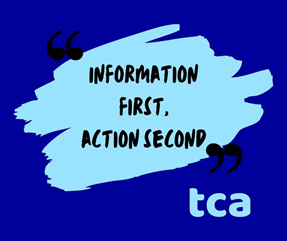Normally we ask you to do your homework at the end of most articles we write when we report about a scam company, which unfortunately is all too common. Today we thought it would be good idea to look in greater depth into the sort of homework you really need to do before parting with money.
It’s worth remembering that an unfortunate facet of the peripheral timeshare industry, mostly relating to claims and exit companies, is that most of these operators are scam companies. To the untrained eye it can be very difficult to sort the good guys from the out and out villains. At TCA our investigations are extremely thorough and consume considerable time to collect the facts and evidence. Some of what we do may not be easy for those who don’t feel comfortable with digging deep into the bowels of the internet, however some are quite simple. In this article we will focus on the simple and investigate the pros and cons.

Unexpected emails
This scam normally revolves around a suppose court case that you have no knowledge of. The reason you have been contacted by the scammer is that they have acquired your data illegally. Most of these scams revolve around previous scam companies or failed holiday clubs. You may have paid a bogus company in the past or you may have paid to join a bogus holiday club, either way, according to the scammers you have been awarded monies as a result of a court case. This is an easy one to spot.
There has been no court case and there is no money. No matter what persuaders the scammers use its all fake so in this case don’t engage or better still never make any payments, you will never be a winner you will lose everything spent.
In this case there are absolutely no pros, only cons, the word con is very appropriate.

Unexpected calls
The General Data Protection Regulations 2018 (GDPR) have certainly put into place many restrictions as to how your personal data may be used, however cold calling is not an illegal activity but those calling have to have certain checks and balances in place. How your data gets into the public domain is not really a mystery. Many people searching the web often come across tick boxes which on the surface seem innocent. Quite often contained within the terms is a statement giving your agreement that your details may be passed to third party companies whose products may interest you.
By way of example, Hilton Grand Vacations has this section in its privacy policy concerning the sharing of your personal data:
“Business Partners: We may partner with other companies to provide you with products, services, or offers based upon your experiences at our properties and may share your information with our business partners accordingly. For example, we may help to arrange rental cars or other services from our business partners.”
From this we may gather that you have agreed for Hilton to share your information with other companies. The important point is that your data must not be given ad hoc to all and sundry but only to organisations who offer similar products, in this case those that are associated with the holiday industry, such as rental cars as specified above.
The pros are you might receive information about products and services that may be of use to you but had never come across before. The cons are that you may be bombarded by unsolicited approaches. The good news is that the law makes it plain that you must be offered an unsubscribe facility which if not adhered to will result in harsh penalties.
The other main downside is if your data has found its way into the public domain then there is an expectation that you may receive a multitude of potentially unwanted contact.

Technology helps
Video calling is nothing new but the global pandemic certainly brought the use of such services as Zoom to the fore. During the various restrictions and lock downs, the use of such technology was not just restricted to individuals, Governments and other large corporate bodies used the service to carry out their day to day business.
A video call is quite valuable from a research point of view as it allows you to take a virtual tour of the company’s offices and from this you can get a feel as to the professional nature or otherwise of the business.
Online search engines are also a great source of investigation. You can check to see it the company is registered and for how long. You can also check their website and again check when the site was registered all good indicators as to whether a company has a history and pedigree.
The pros are that technology especially the internet is a wonderful source of information and excellent for research.
The cons are that you need to be relatively tech savvy which may be a put off to some.

An office visit
In an ideal world it would be good to actually visit the company’s premises so you get a good feel for who you may be dealing with. We appreciate that this is not always possible due to travel distances but if it’s possible avail yourself.
The pros are that you get to see and get a feel for the company you may engage.
The cons are as per above, distance and travel

Areas to avoid
It’s very important to not allow yourself to be pushed into making a snap decision on the strength of a single phone call, take time to carry out your research before entering into any contract or pay any monies. If you do decide to go ahead then ensure you confirm that you are entitled to your legal right to cancel within the 14 days allowed.
Avoid allowing company representatives to make an appointment to visit you in your own home. The representative will try very hard to make you sign contracts at the meeting thus making it impossible to do your “homework” beforehand, as described above. Should you allow such a visit the legislation and rules relating to doorstep selling apply.
The seller must inform the customer of the ‘cooling-off’ term. The customer may cancel their contract up to 14 calendar days after the conclusion of a contract. There is no requirement for them to give a reason for the cancellation.
Failing to inform the customer about their right to cancel means the consumer may end the contract at any time in the forthcoming 12 months.
Important Information: Not telling a customer their right to cancel can mean an unlimited fine and a prison sentence (up to 2 years).
Another area to avoid is answering in the positive when asked a simple question “would you like us to start work for you straight away?” technically agreeing with this will forfeit your right to a 14 day cooling off period, but it isn’t quite that simple. This question must be accompanied with an explanation that by agreeing you understand that you lose the protection of the cooling off period. If this is not explained then the cooling off period still applies.
Many of us install security cameras, burglar alarms and just in case have full insurance cover, all this to prevent uninvited guests into our home. On the simple strength of a cold call you accept an appointment to let a complete stranger into your house would seem to fly in the face of all the security previously mentioned.
The pros, to be honest we can’t think of any.
The cons, you have no idea who you are dealing with, one man in a suit is hardly representative of the size and pedigree of the organisation that you may end up paying thousands to.

Finally
Timeshare fraud is on the increase and the scammers are becoming more sophisticated as time goes by. Part of the reason behind this increase is that too many victims take what is said and the evidence presented at face value without carrying out research, in other words you become a sitting target. All the points raised above are valuable tools to attempt to ensure that you don’t fall prey to fraudsters, don’t forget, fraud is not limited to timeshare, it’s all around us.
Believe us when we say there are good guys out there who are willing and able to assist with timeshare claims and exits, sorting the chaff from the wheat is the challenge.
TCA have, for the last 25 years, operated a listing system mostly consisting of our white list but more importantly our black list which unfortunately is by far the larger. Remember we are only a phone call away; it’s fair to say that it’s better to be safe rather than sorry. If you have a timeshare or long term holiday product and require assistance, just get in touch and we’re here to help.

For more information regarding this article or assistance in any other timeshare related issues please contact the TCA on 01908 881058 or email: info@TimeshareConsumerAssociation.org.uk
